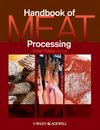A Matter of Trust
By Kathie Canning, contributing editor
Foster Farms has set its sights on extending its value-added business through a rational growth plan and the building of new relationships.
Q: Why did the chicken cross the road?
A: To get to the other side.
Yes, it’s one of the oldest jokes known to man. But when “the other side” means Foster Farms, it’s easy to understand why a chicken might fly the coop to get there. After all, the company’s natural, locally grown chickens are known for their high quality and premium taste.
In fact, the 67-year-old family-owned Foster Farms, headquartered in Livingston, Calif., calls itself “the West’s most trusted poultry company.” And with long-standing core values based on “Excellence, Honesty, Quality, Service and People,” that claim is probably not a stretch.
But this long-time regional producer of fresh chicken and turkey products is aiming even higher. With a rapidly growing business in value-added products for retail and foodservice — including corn dogs, lunchmeats, chicken breast strips, chicken wings, chicken breast nuggets and more — Foster Farms has set its sights on further extending customer and consumer trust.
“Our vision is to be the most trusted branded food company in America,” says Don Jackson, the company’s president and a 29-year poultry industry veteran.
Rational planners
As it stands, Foster Farms is a $1.7 billion company, with annual retail sales (both fresh and value-added) and annual foodservice sales of approximately $1.2 billion and $200 million, respectively (the balance includes commodity grain sales). The company employs almost 11,000 people across its operations, which include 10 chicken and turkey processing plants located primarily in the West. Of those plants, five produce value-added products.
Much of the company’s growth over the past 20 or so years focused on the West Coast and the Pacific Northwest — and was helped along by strategic acquisitions, notes Bob Wangerien, vice president of value-added marketing. A 28-year industry veteran, he’s been with Foster Farms for 10 years.
In 1982, Foster Farms acquired The Grange Co. (and its Valchris Poultry subsidiary), which put the company into the turkey business for the first time, he says. In 1987, the company acquired Fircrest Farms (in Creswell, Ore.), which brought it into the Pacific Northwest.
The 1996 acquisition of Demopolis, Ala.-based Griffith Foods made Foster Farms a national corn dog company, adds Wangerien, while the 1999 purchase of Butterball Turkey Co.’s assets in Turlock, Calif., afforded the company a “much bigger presence” in turkey nationally. Still other acquisitions beefed up existing operations or brought in new capabilities.
Instrumental to growth on the value-added side, however, was construction of the Porterville, Calif., cooked chicken plant. (See “On a wing and a dare” on p. 86 for a profile of the company’s Portersville, Calif., processing plant.)
“The Porterville plant, which was built in 1999, put us into the cooked, value-added chicken business,” says Wangerien.
He acknowledges that Foster Farms was late getting into the value-added chicken category, a reality that called for a rather aggressive growth plan.
“We were early on turkey and corn dogs, but we’ve only been in [cooked] chicken seven years,” says Wangerien. “Formulation was a challenge, but we have a lot of talented people who were able to take us up to speed in terms of manufacturing products. But in terms of building market share, that was a challenge.”
To attract new business, Foster Farms transformed a perceived shortcoming into a strength, Wangerien says.
“We started out thinking that our position as a regional player was a disadvantage,” he says. “We turned that around and tried to reposition it as an advantage — for folks that have multiple suppliers, we want to be their Western supplier.
“There’s an advantage of having a regional supplier — a shorter supply chain; less distribution cost; a better understanding of the market and operators and/or consumers in that market,” he adds. “And no one said our strategy didn’t make sense. That’s what we’ve continued to leverage into a point of differentiation for us in terms of the competition.”
Of course, the term “regional” might be rather limiting when talking about Foster Farms’ value-added business. Its frozen corn dogs are sold nationally at foodservice and retail (including club stores), and refrigerated and frozen turkey and cooked chicken products are distributed multi-regionally. Frozen chicken wings, which account for more than half of the company’s foodservice business, also are distributed throughout several regions to customers that include national chain accounts.
Continued growth on the value-added side will focus on new products, greater geographical penetration and the changing needs of customers and consumers. Ron Foster, chief executive officer of Foster Farms, has a goal for growth that calls for supporting and defending the core fresh chicken business, Wangerien stresses.
“We want to make sure we focus on execution and continue to do things as well in the future as we’ve done in the past,” he says. “As we continue to grow, I think we have to look for ways to expand our business outside the West, but in a conservative, rational type of extension. … We need to make sure that we continue to build on that consumer trust that we’ve established since 1939 by making all of our products aligned as closely as we can with the attributes associated with our core chicken business.”
Adds Jackson, “I think it’s fair to say that our position is that we will grow or acquire opportunistically as it would protect the core business and allow for geographic expansion. ... Obviously, the landscape is changing relative to our customer base. … The big store format is growing on the West Coast and really was not present even five years ago. … Adapting to the changing marketplace of our customers is very critical to us, and we have done that successfully.”
Relationship builders
Of course, steady growth requires the establishment of good relationships with both customers and consumers, something Foster Farms perfected many years ago — and continues to enhance today.
“The biggest thing we’ve established with consumers is trust,” says Wangerien. “We want the same thing on the part of our customers. We want them to think we’re a company they can trust, not only in terms of good food products, safe products, but also in terms of a business relationship.”
To accomplish this, Foster Farms lives and breathes “customer intimacy,” says Robert Kellert, senior vice president of retail sales and a 23-year Foster Farms employee.
“We [are dedicated to] world-class service, ‘our word is our bond,’ and excellence in business partnerships,” he says. “A short time ago we went out and surveyed all key foodservice and retail customers to see how we stand against the competition. We rated very high.”
The company recently revamped its marketing and sales structure in an effort to further augment customer relationships, notes Wangerien. Under the prior structure, marketing teams were aligned by marketing channel. Now, teams are aligned by major product — cooked chicken, corn dogs or turkey.
A group marketing manager is responsible for each of those major product areas, he says, while one person heads up foodservice and another leads retail efforts within each area.
“It helps us keep a focus on the overall corn dog, cooked chicken and turkey businesses, as opposed to just optimizing or maximizing channels within that,” Wangerien maintains. “To make sure that it’s transparent to the customers in a channel, we have a salesperson responsible for presenting Foster Farms as one company, one entity to the customer, and we have an umbrella marketing campaign that brings all the business product types together to the customer.”
Within the retail sales arena, sales personnel are organized by business groups, notes Kellert, meaning major retailers, club/mass merchandisers, independent retailers and the expansion market.
“We have excellent coverage for our retailers, and we’re flexible,” he says. “We’ve successfully implemented SAP, too, so we have a short lead time [for orders]. We strive to be excellent business partners — and we really are.”
Foster Farms also is the “go-to” company for customers that want to partner on new product development, Kellert says. These types of requests from retailers have grown tremendously during the past five years, he adds.
A savvy product marketer, Foster Farms realizes that the right promotions help further build consumer relationships. Company marketing efforts include seasonal promotions, holiday promotions, grilling tie-ins and more.
“I think we truly are a marketer first,” Kellert says, “and a producer second.”
Yet another strength in terms of relationship building is Foster Farms’ ability to distribute its own products. The company operates the largest private refrigerated fleet of trucks in California.
“We distribute 80 percent of our product with our own fleet, and that’s extremely unique,” says Jackson. “And given our location on the West Coast, separate from the rest of the country, that’s even more important. We can service the distribution centers or store door deliver our customers at a level not achievable by our competitors.
“So whether you’re talking about the sales force, marketing or distribution, we have a very intimate relationship with our customers,” he continues. “I think part of that points to our former CEO Bob Fox, who really developed the whole concept of customer intimacy, which I think is a big part of our success.”
Relationships with the local communities in which they do business also are important to Foster Farms. Particularly noteworthy here are the company’s voluntary efforts to help protect California’s water resources and environment.
Going forward
As Foster Farms continues to build its value-added poultry business, its people — a key pillar of Foster Farms core values — also will play major role in the equation for success.
“Central California has a very diverse population, so our employees reflect that — there are a lot of different ethnic groups and nationalities in our workforce,” says Jackson. “We consider that to be a strength in our organization.”
And employees generally feel “really good” about working at Foster Farms, says Wangerien.
“It’s a trusted company,” he stresses.
As such, it boasts numerous long-term employees, including many who have left the company only to return for a second stint. Management retention, too, is higher than the national average, says Kellert.
“We have a 25-year anniversary celebration here where people celebrating 25 years with us come here for a dinner from all over the country,” says Wangerien. “We host about 150 people a year.”
All these people helped make Foster Farms the unique company it is today — a trusted regional poultry company that truly looks like a consumer packaged good business instead of a commodity chicken business. Moreover, they will help steer the company to what it wants to be tomorrow — the most trusted branded food company in America.







